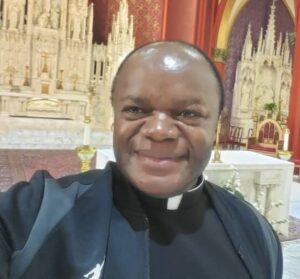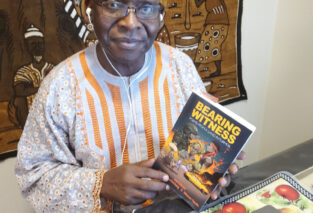In his beautiful, easily readable, and humour-spiced book, “The Spirituality of Humor and Laughter: Why Good Things Happen To Bad People” (www.christianfaithpublishing.com), Reverend Father Eugen Nkardzedze, a priest of the Diocese of Kumbo in northwestern Cameroon, says that authoritarian leaders or dictators fear homilists and humorists. His claim struck me, so I sought to find out why he believes these two types of individuals irritate dictators.

First things first, who are homilists and humorists? They are individuals noted for giving moral or ethical lessons, often to guide people toward virtuous behaviour and away from unethical actions. As a Roman Catholic priest, Father Eugen certainly knows much about homilies, which he often preaches. Through their sermons, homilists, like Father Eugen, can sway public opinion by appealing to moral principles, thus posing a threat to dictators who may engage in immoral or oppressive actions. Their ability to inspire moral reflection and critique oppressive regimes makes them a thorn in dictators’ delicate sides.
If we take the case of Cameroon, Father Eugen Nkardzedze’s home country, some of his fellow priests and pastors of protestant denominations have paid with their lives for daring to preach homilies that the rulers of their land deemed unacceptable. A few names readily come to mind: Bishop Yves Plumey, retired bishop of Garoua, Bishop Jean Marie Bala of Bafia, Jesuit priest and world-renowned historian, Father Engelbert Mveng, SJ, Father Francis Mbassi, a journalist and a one-time editor-in-chief of the Catholic newspaper, L’Effort camerounais, Father Anthony Fonteh, the then principal of Saint Augustine’s College in Kumbo Diocese, all killed under circumstances that have never been elucidated. Reverend Pastor Michael Bame Bame of the Presbyterian Church, gained notoriety by openly denouncing the hypocrisy of those in power who, he claimed, paraded as faithful Christians of his church while oppressing the masses. For his reward, he was hounded and persecuted to an early grave.
Humorists, for their part, use humour, satire, or comedy to ridicule, mock, or expose the absurdities and flaws within society, including political systems and leaders. Since they often use wit and irony to highlight hypocrisy, corruption, or abuses of power, dictators do all in their power to silence them. Their ability to make people laugh at the expense of authority undermines the serious image and control that dictators seek to maintain. Humour can also be a powerful tool to rally public sentiment against oppressive regimes. In Cameroon, for example, musician Lapiro de Mbanga lampooned those in authority in his often hilarious songs that the masses repeatedly sang and danced to, with much delight. Those in power thanked him for his audacity with several years behind bars. After his stint in jail, he fled abroad where he passed on shortly thereafter.
I recall a certain student of the then-lone University of Cameroon in Yaounde in the 70s, who wrote what looked to some of us like an innocent though humorous story that had as the main protagonist a mosquito, which flew to the homes of those in the ruling circles — politicians, government ministers, heads of state corporations — eavesdropping on their conversations and biting those it heard plotting acts of corruption and other ills. Once this innocent-sounding story saw the light of print, the author, who was then teaching in a remote village, became the target of much anger from those who felt targeted. His salary was interrupted and he too was hounded to an early grave.
In summary, both homilists and humorists pose threats to dictators by challenging their authority, exposing their shortcomings, and potentially rallying public opinion against them through moral persuasion or ridicule. Hence, dictators dread these types of individuals because they can undermine their legitimacy and control over the population.



